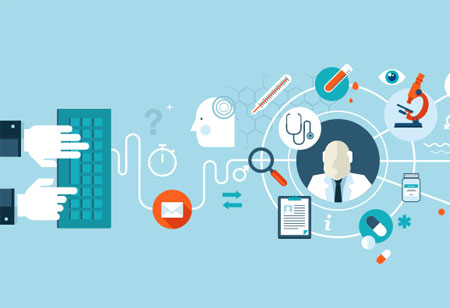THANK YOU FOR SUBSCRIBING
Emergence of New Healthcare Models with Innovative Technologies
The healthcare industry is prepared to adopt innovative technologies to drive the next wave of digitalization and the emergence of new care models.

By
Apac CIOOutlook | Friday, April 26, 2019
Stay ahead of the industry with exclusive feature stories on the top companies, expert insights and the latest news delivered straight to your inbox. Subscribe today.
The healthcare industry is prepared to adopt innovative technologies to drive the next wave of digitalization and the emergence of new care models. In precision medicine and Electronic Health Records (EHR), the world is already seeing cases of use for diagnosis and treatment. In addition to saving lives and improving quality of life, advances in technology have reduced medical costs, made healthcare available in remote locations, and totally changed processes related to research, innovation, and education. Corporations' combined power and technology have the potential to influence healthcare, but they are not the only ones in this industry that make waves. The increasing acceptance of wearable health trackers, telemedicine and advanced data analytics show great promise for health and wellness's tech-enabled future.
Many tech leaders rely on analytics of health care. There are already sufficient patient data from several sources, including diagnostic tests, medical devices, and wearables. Companies are focused on tackling the challenge of putting all this data into a common format and integrating it into a single platform, allowing healthcare professionals to evaluate patient risk better and optimize treatment.
Check Out: Top Healthcare Technology Companies in APAC
For the continuous and widely accepted adoption of such systems, these tech innovators would have to address data privacy concerns and the highly regulatory nature of the healthcare sector. The relatively recent entrants at the block are expected to lead Health 2.0: virtual reality (VR) and artificial intelligence (AI). VR technologies concentrate solely on counseling, pain management, telemedicine, surgical training, occupational therapy, and various other applications. AI focuses on diagnostics, EHR analytics, synthesizing information from a variety of sources, and remote patient surveilling using wearable devices.
Because of the cutting edge technology in patient documentation and data mining, businesses will be able to offer healthcare plans that are tailored directly to each individual's needs rather than one plan for many. This will enable streamline the process and, most crucially, save costs, especially when it comes to patient care, for both health care providers and consumers.
Healthcare technology's future holds tremendous promise to increase patient access to earlier disease diagnosis and treatment, improve the quality of healthcare, and reduce healthcare costs. Furthermore, by merging functional features with emotional benefits, or focusing on industrial design with user experience, companies are using advanced technology to provide patients with greater emotional experience.
Check This Out: Top HR Analytics Companies





